Alinea Customs were invited to attend the Financial Times’ ‘Made in Italy’ Evening Reception, for a second year, hosted at the FT’s headquarters’ Bracken House, a short distance from our Head Office.
Organised by The Financial Times in partnership with Il Sole 24 Ore as a precursor to their 28 – 30 October 2025 Made in Italy 2025 Summit (register here), this year’s themes for discussion included geopolitics, tariffs and trade; supply chain resilience, and digital transformation in exports. Alinea Customs provide consultancy guidance and international trade strategies to several corporate organisations who manufacture in Italy. The conference provided a unique opportunity to reflect on contemporary forces shaping investment in the Italian economy. In the latest data published by the World Bank, exports attributed to 32.7% of Italy’s gross domestic product (GDP).
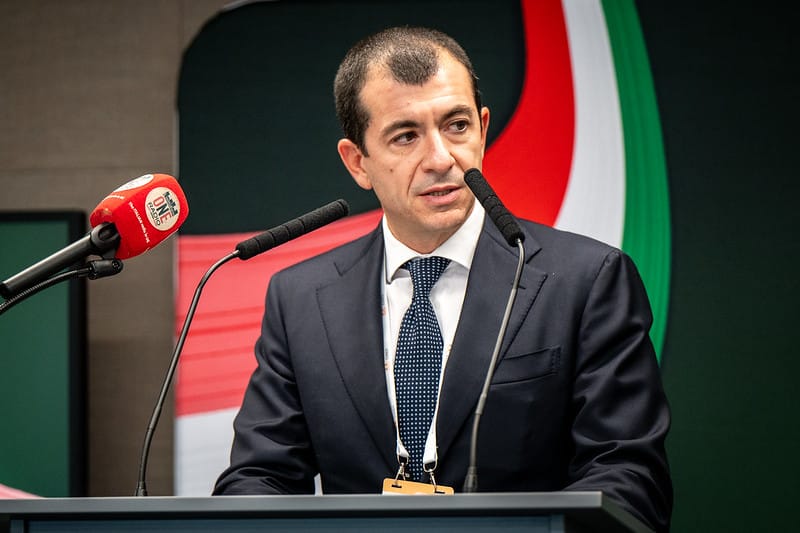
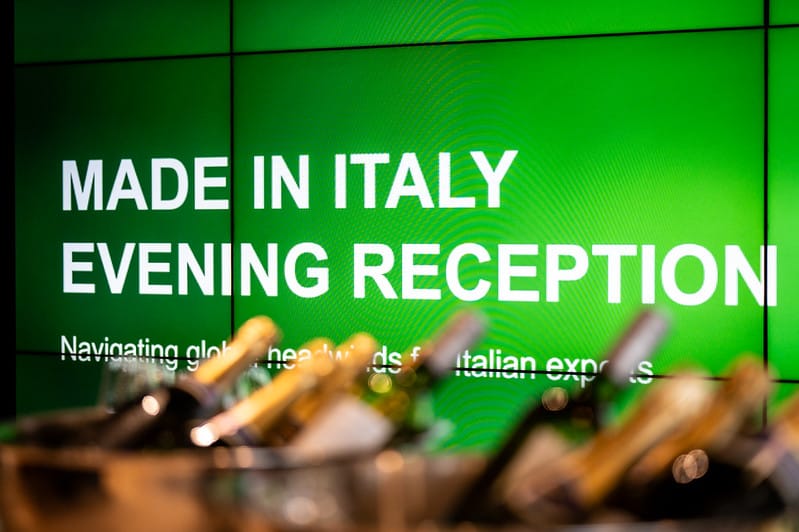
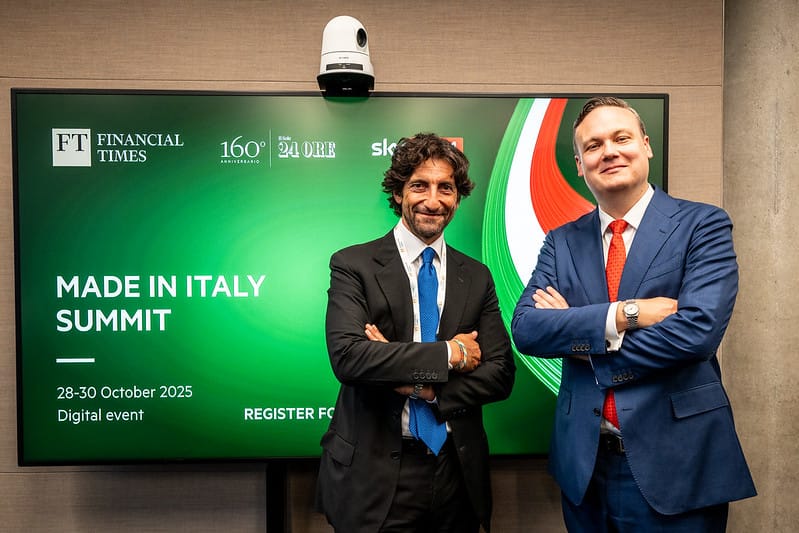
© The Financial Times Live
It was generally concurred that the incumbency of Italian prime minister Georgia Meloni has been well received. Several business leaders identified that she had brought stability to a fractured political system, that had previously averaged a new cabinet every 13 months. Furthermore, in terms of international diplomacy, it was noted that Meloni had conducted active engagement with global leaders. In September 2024, Meloni strengthened the UK-Italy partnership through announcement of £485 million of Italian investment in the UK’s defence sector (read more: here).
Umberto Bernardo, First Counsellor, Embassy of Italy, Alternate Director, European Bank for Reconstruction and Development provided by the opening remarks, alongside speeches by Federico Silvestri, Chief Executive Officer, 24 ORE Group, and Orson Francescone, Managing Director, Financial Times Live.
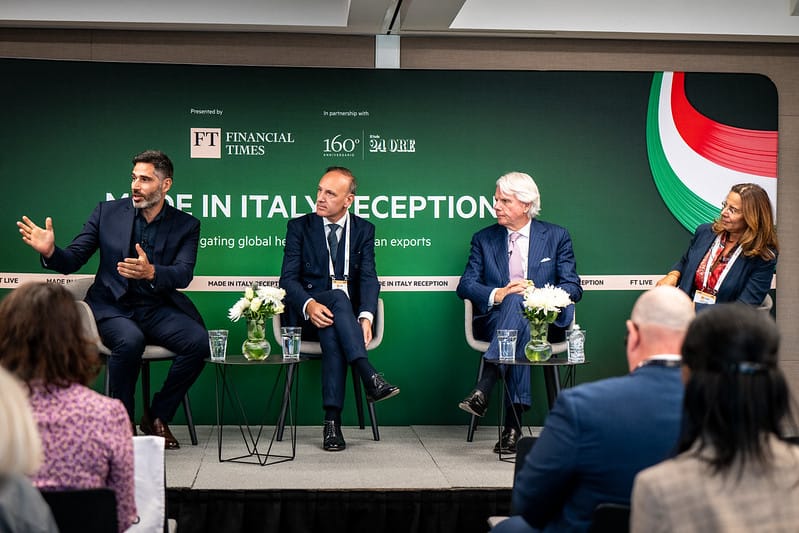
© The Financial Times Live
The panel discussion was lead by (L-R) Jacopo Dettoni, Editor, fDi Intelligence, Guglielmo Picchi, President, SACE, Dario Rinero, CEO, Haworth Lifestyle & Vice Presidente, Altagamma, and Regina Corradini D’Arienzo,Chief Executive Officer and General Manager, SIMEST.
Post-second world war, Italy focused on manufacturing and design, and have subsequently platformed a global reputation for excellence within this sector. The headline motif “made in Italy” is considered to represent a quality standard within luxury, furniture, food, and machinery amongst other areas. The imposition of 15% tariffs on European exports to the United States could result in US retailers raising their prices on Italian goods, and therefore a decrease in consumer demand could occur as a result. The FT’s partners Il Sole 24 Ore have an informative article available on this topic: here.
The OES has identified that in In 2025-Q1, Italy exported mostly to Germany (€19.4B), United States (€18.5B), Spain (€9.47B), Switzerland (€7.84B), and United Kingdom (€6.94B). Key export sectors of Italy were machinery and equipment nec (€20.7B), pharmaceutical products and pharmaceutical preparations (€15.9B), food products (€9.81B), metallurgy products (€9.47B), and chemicals (€8.75B).
Regina D’Arienzo identified that SIMEST had made $1 billion of investment in SMEs and young Italian entrepreneurs in the previous year. SIMEST operate through loans for international expansion, export credit assistance and equity investments in companies. She highlighted that due to the nature of familial business structures in Italy, financial instruments that are readily adopted within adjacent economies have a low uptake rate in Italy.
Dario Rinero shared insights into his background in the Italian furniture sector, having previously worked with renowned brands such as Poltrona Frau, Cappellini, Cassina, Ceccotti, Interni, JANUS et Cie, Luxury Living, Luminaire, and Zanotta. He also illustrated the integral role of Altagamma in supporting Italian luxury businesses in retail and international expansion, nurturing manufacturing talents, and highlighting global acknowledgement of Italian beauty and style. He deflected an audience member’s question on whether Italy’s reputation in the sector was being diluted by imports from regions such as China being incorporated in Italian exports, and Chinese emigrants establishing factories in Italy. Whilst the Chinese-Italian economic partnership and influx of migrants into fashion-intensive regions such as Prato has been considered to have revitalised the output of Italian fashion sector, concerns have also been voiced over poor labour conditions (read more, here and in Lan, T., & Zhang, L. (2024). Made in Italy by Chinese: fashionability and transnational Chinese entrepreneurs. Chinese Journal of Communication, 18(3), 260–278. https://doi.org/10.1080/17544750.2024.2311263s’).
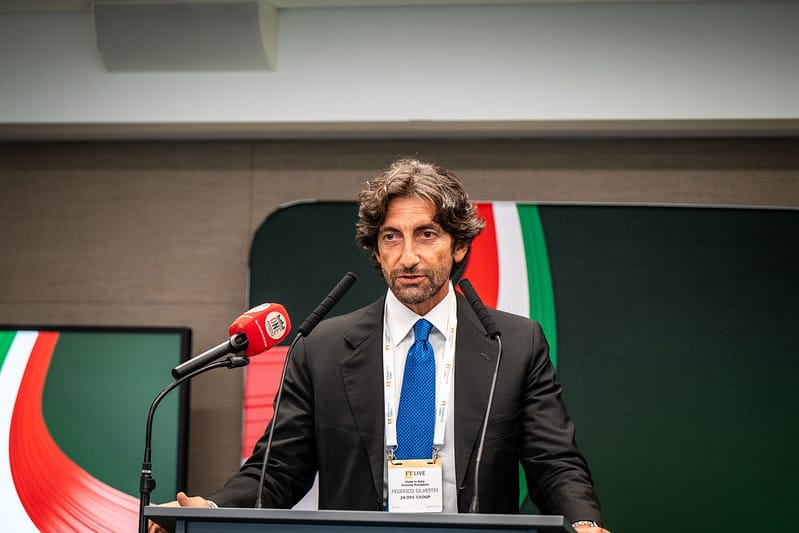
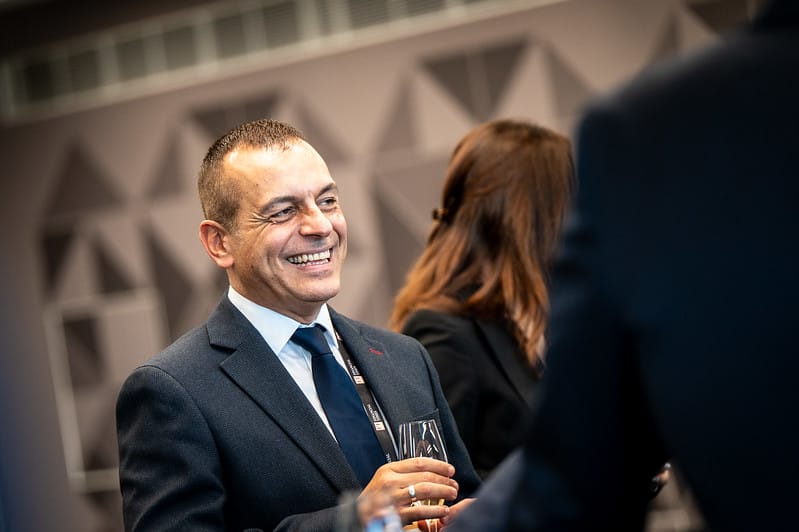
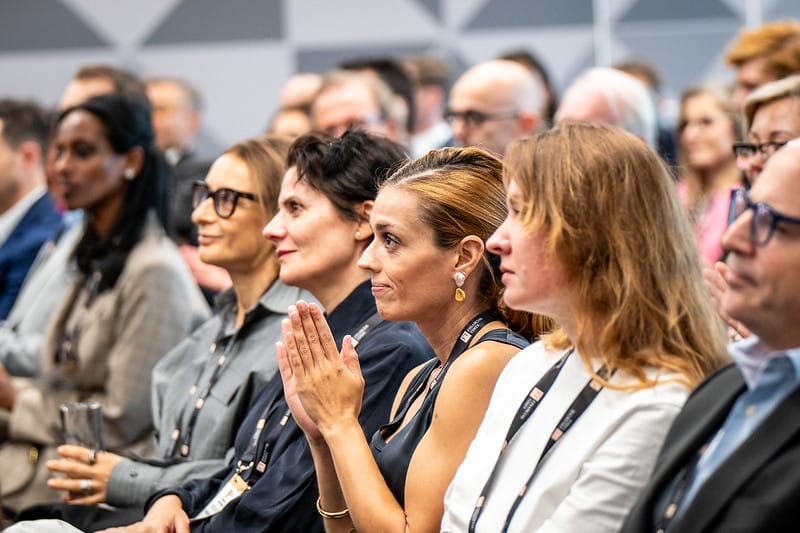
© The Financial Times Live
The event positioned strategies for Italian businesses to build more robust and diversified supply chains in an increasingly unpredictable global landscape, and adopt digital transformation through technology and e-commerce platforms. A subsequent informal conversation with Osvaldo Spaldano, CEO at web-hosting platform Akoova used by brands such as Celine, Fred Perry, Moncler, New Balance, Stussy, and Yves St Laurent reflected on areas such as the increased use of hydrogen in cooling systems for data centres, and the growing importance of online retail in driving interlinked international economies.

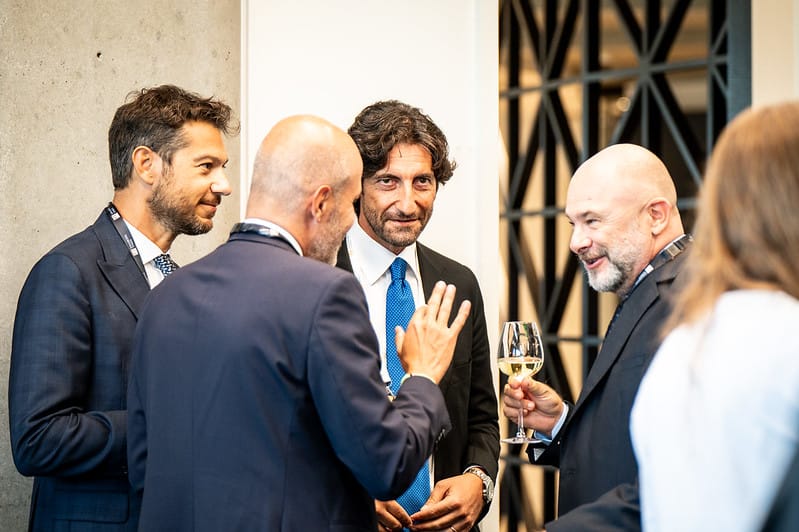
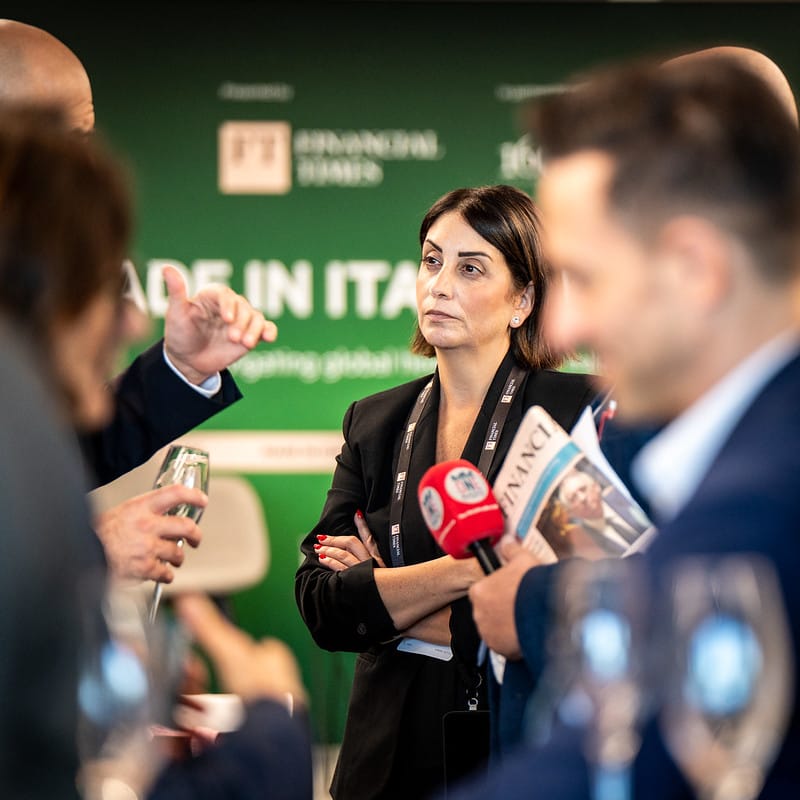

© The Financial Times Live
Customs Consultancy
Alinea Customs shared insight into our trade technology tools such as customs API intergrations for e-commerce platforms, which enable online retailers to process rapid and compliant customs declarations, and improve efficiency. Integral to accessing international markets is accuracy in tariff classification and customs valuation, and consistently monitoring geopolitical events in order to move with agility in a turbulent environment. A key area when shipping to the United States to consider is differentiation between the European and United States’ ten digit tariff nomenclature. Whilst on the basis of the World Customs’ Organization’s harmonised schedule, the first six digits of the harmonised schedule (HS) codes are identical across global markets, there a signficant differentiations between the final four digits, and variance between the
TARIC, the integrated Tariff of the European Union and the United States Harmonized Tariff Schedule HTS. Failure to accurate classify goods on a regional basis can result in an increase in delays at the border, post-clearance demand notes prior to liquidation of a customs entry, potential penalties, and increased supervision from local customs authorities.
We recently assisted an international luxury menswear brand who manufacture in Italy with classification for the US market across their entire inventory. We have also assisted a leading Italian machinery brand that specialised in steel rebar and steel coil cutting in entering the UK market, and provide customs clearance for multiple UK-registered companies importing Italian food and wine, assisting them with claiming 0% tariffs on entry into the United Kingdom
Alinea Customs offer trade insights and tariff compliance reviews, please contact us to discuss areas related to global trade consultancy and the supply chain.
Schedule a courtesy call with Alinea Customs’ team to discuss customs consultancy, trade tariffs, and supply chain strategy with our team by entering your details in the form below.
Email: customs@alineacustoms.com.
Further reading:

